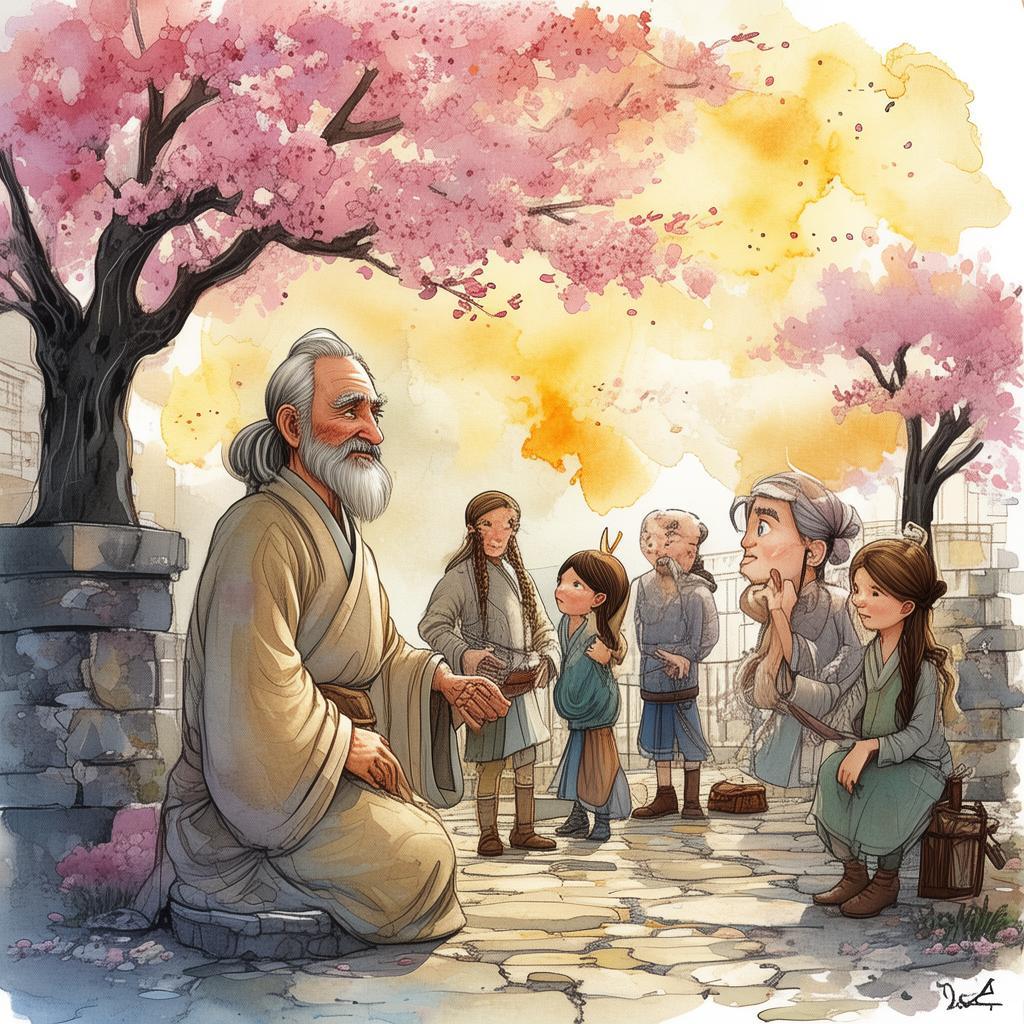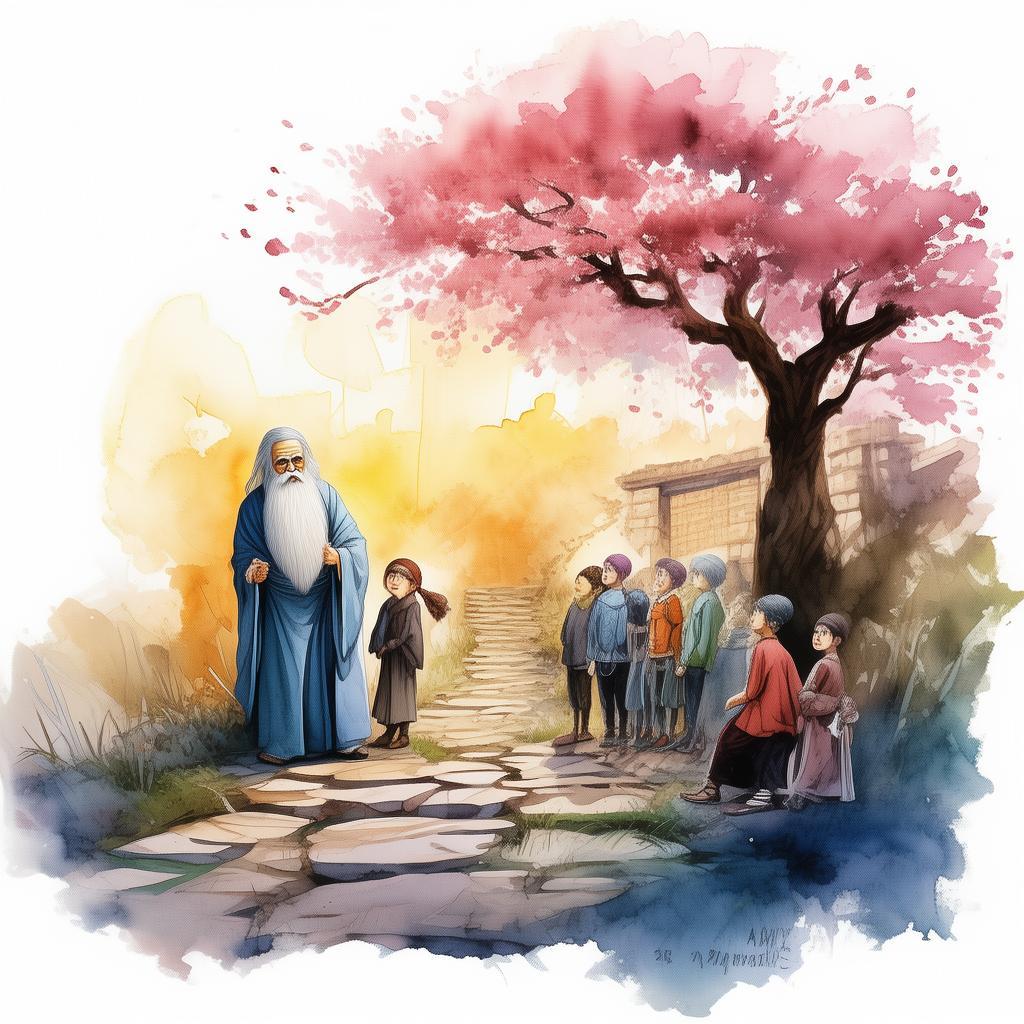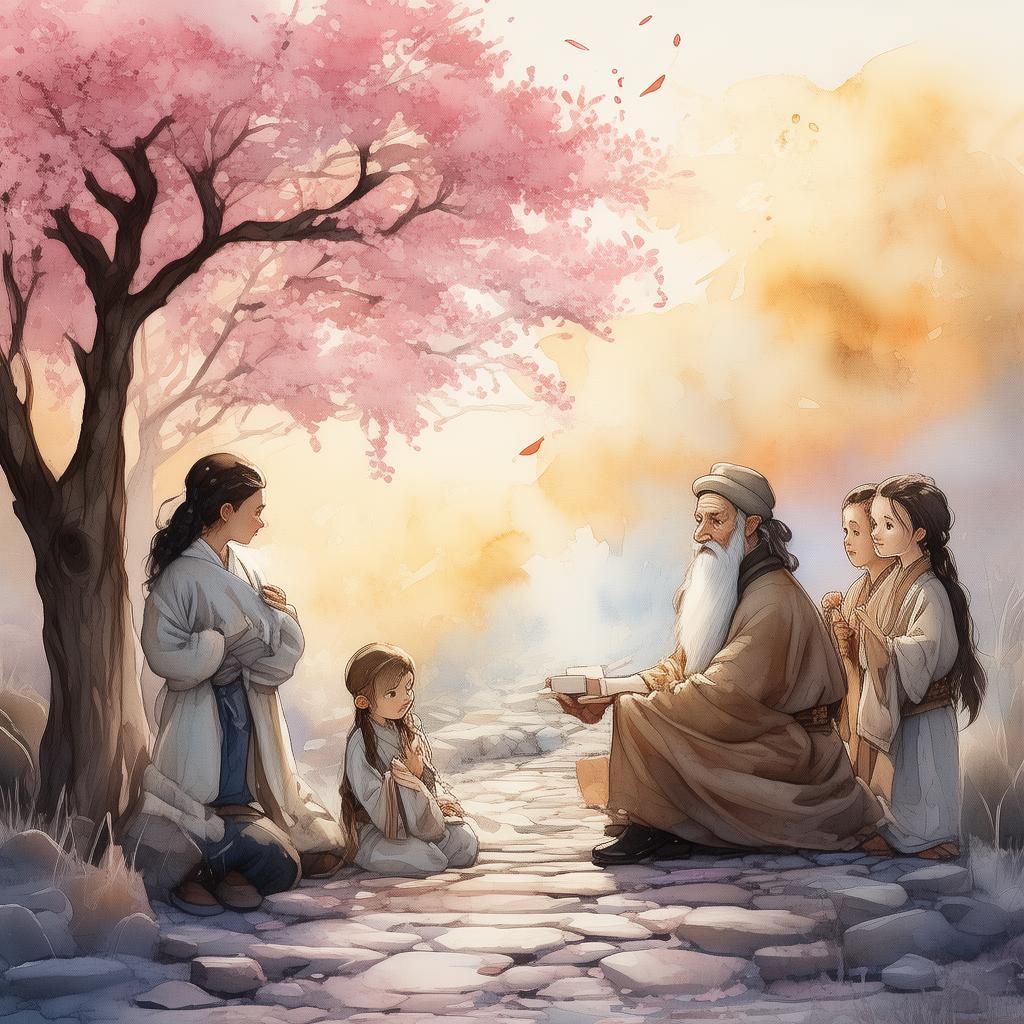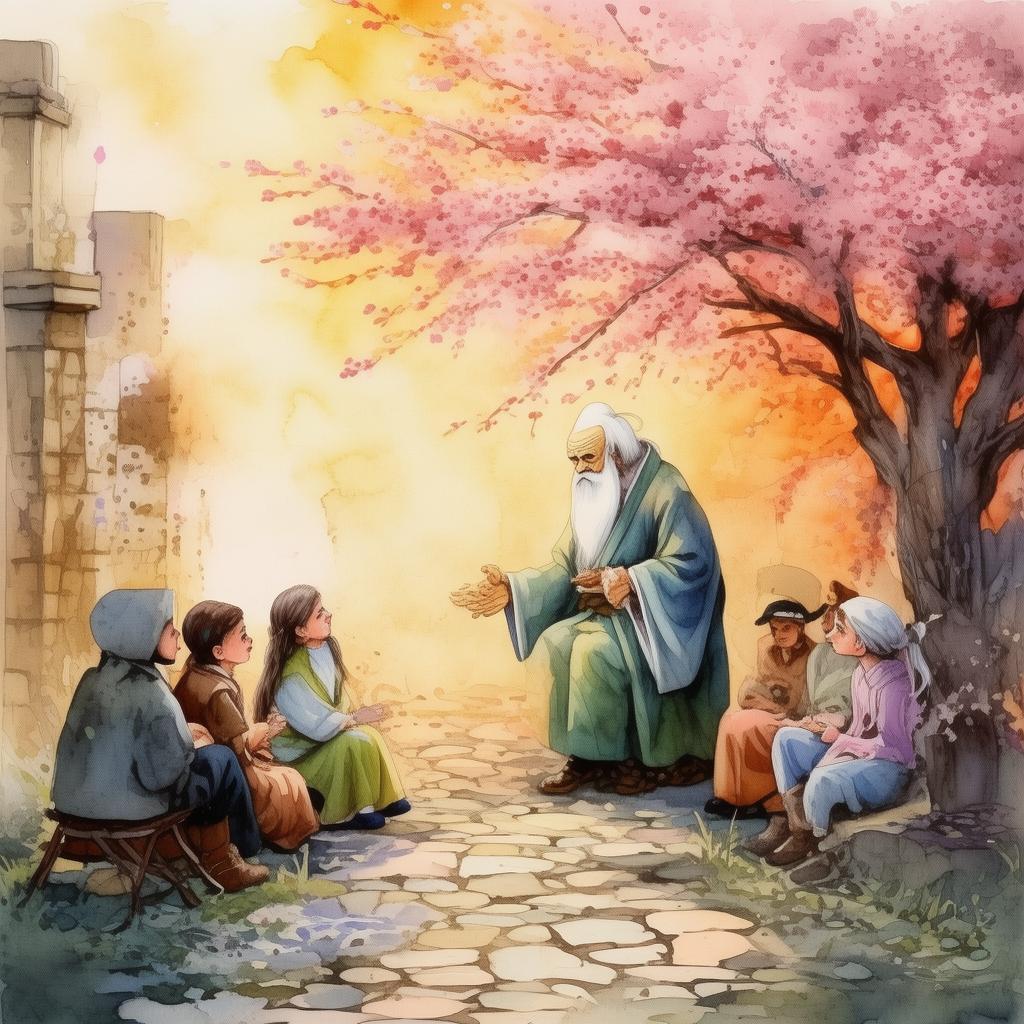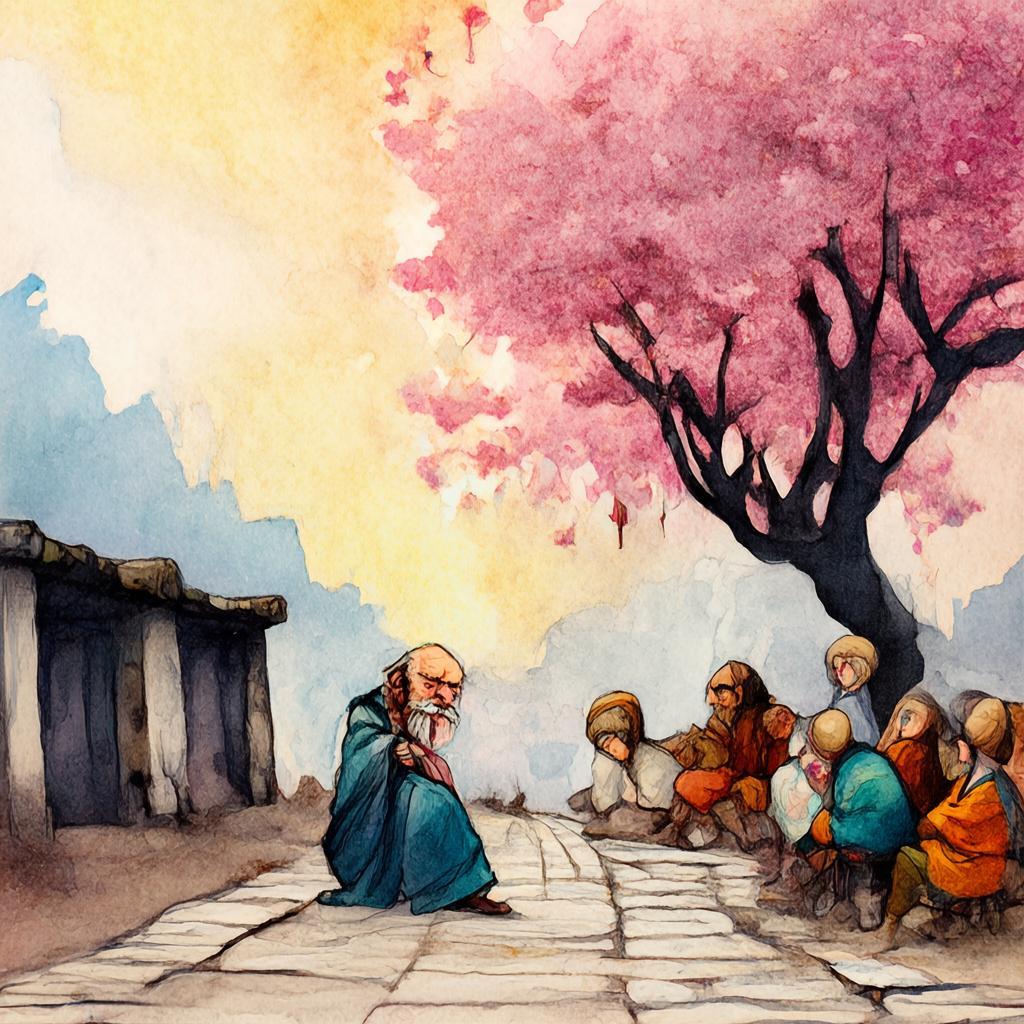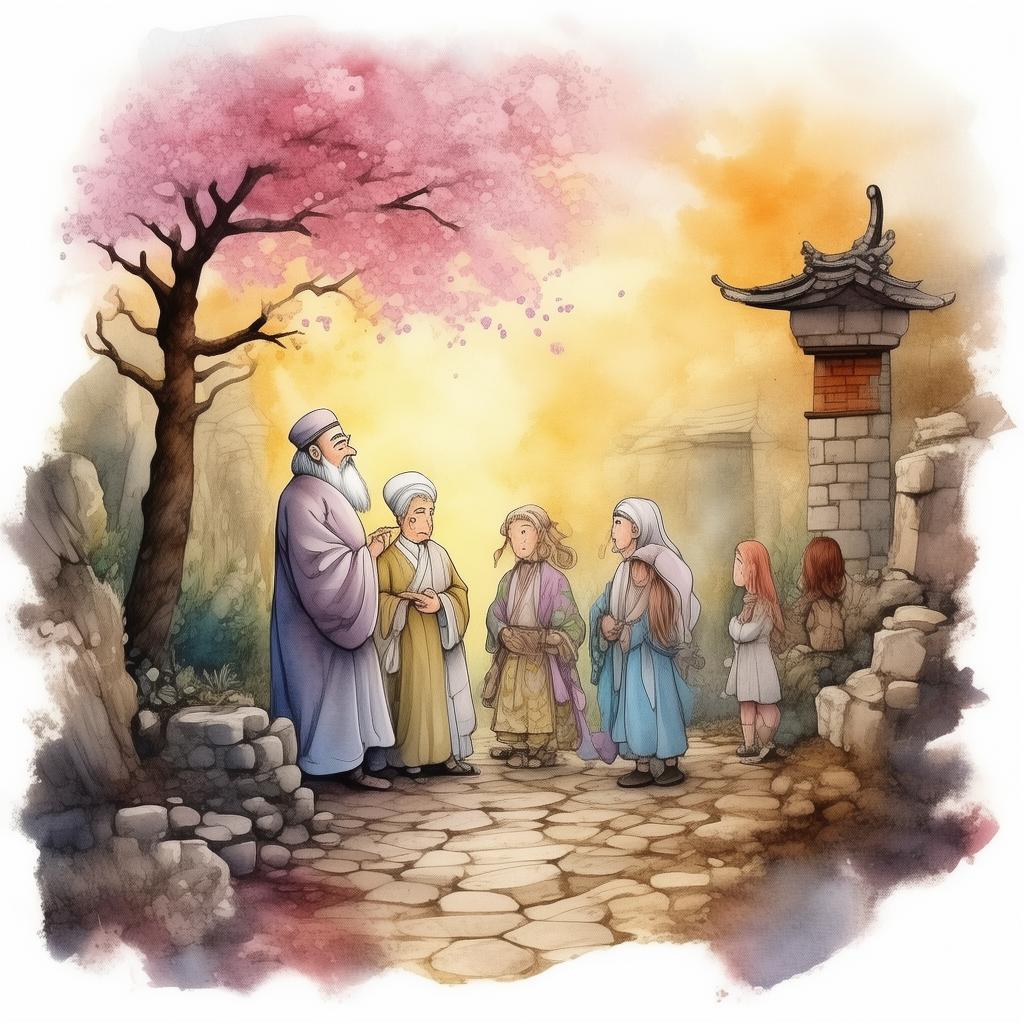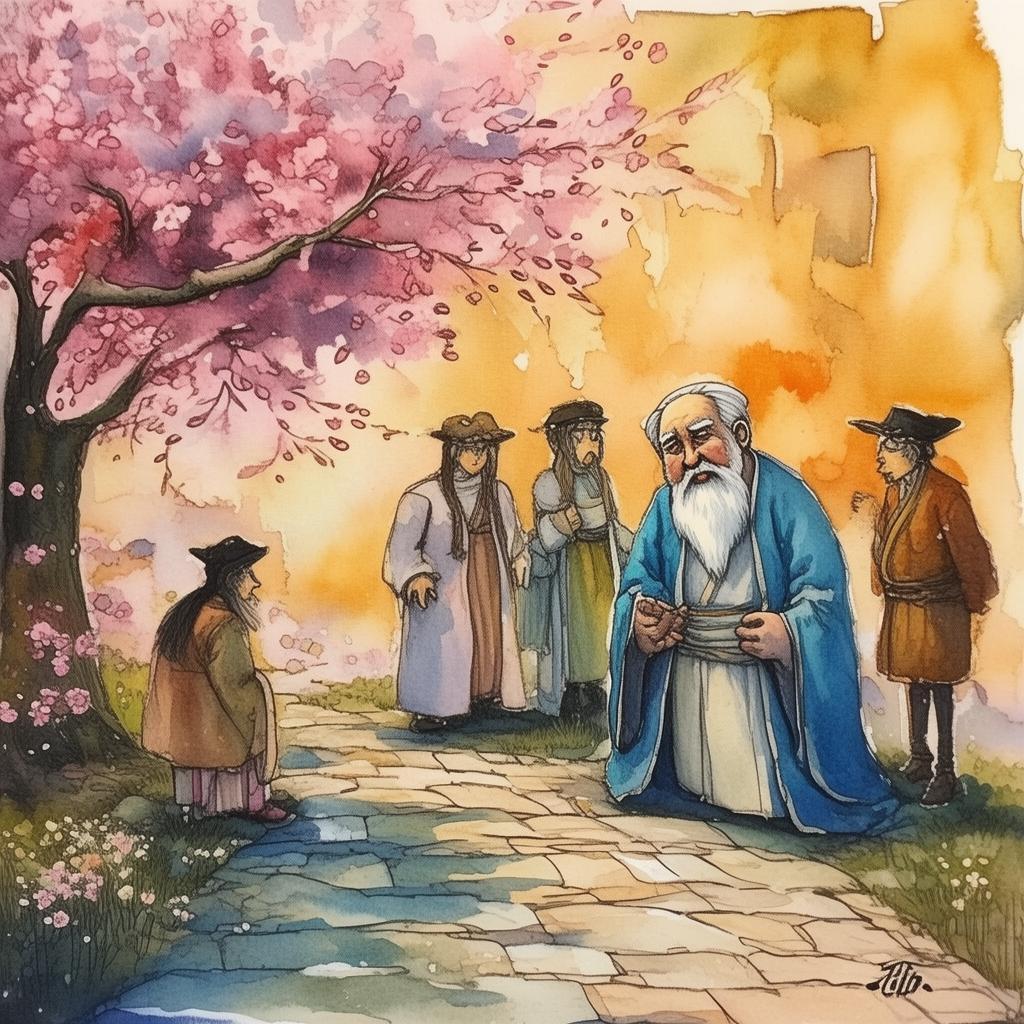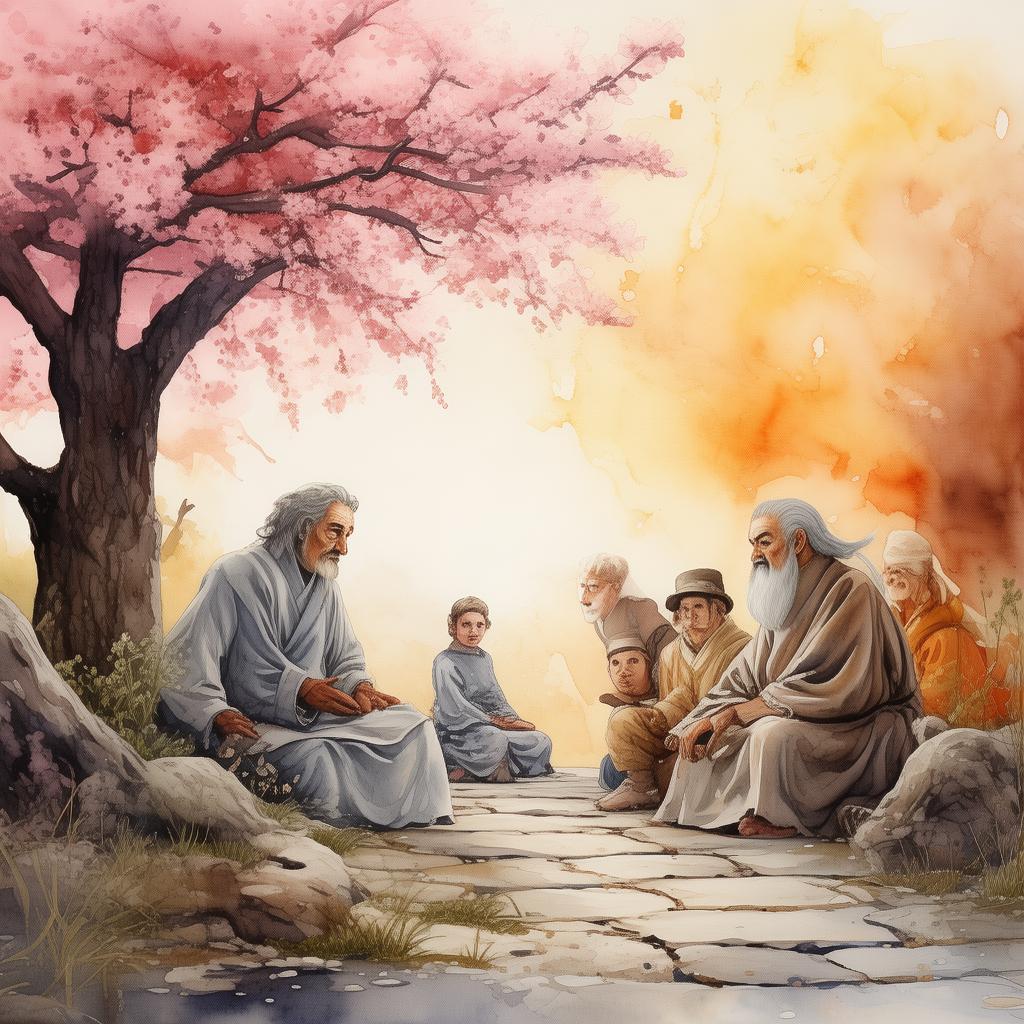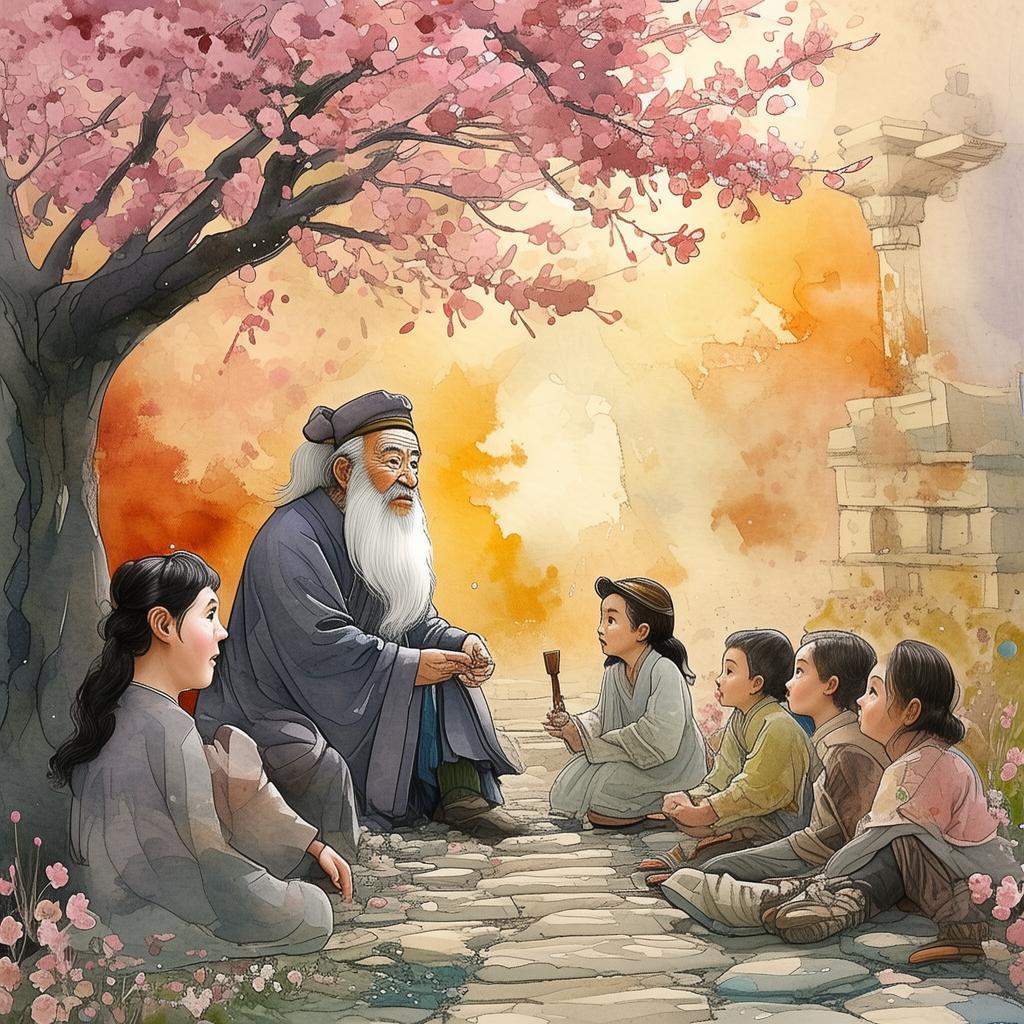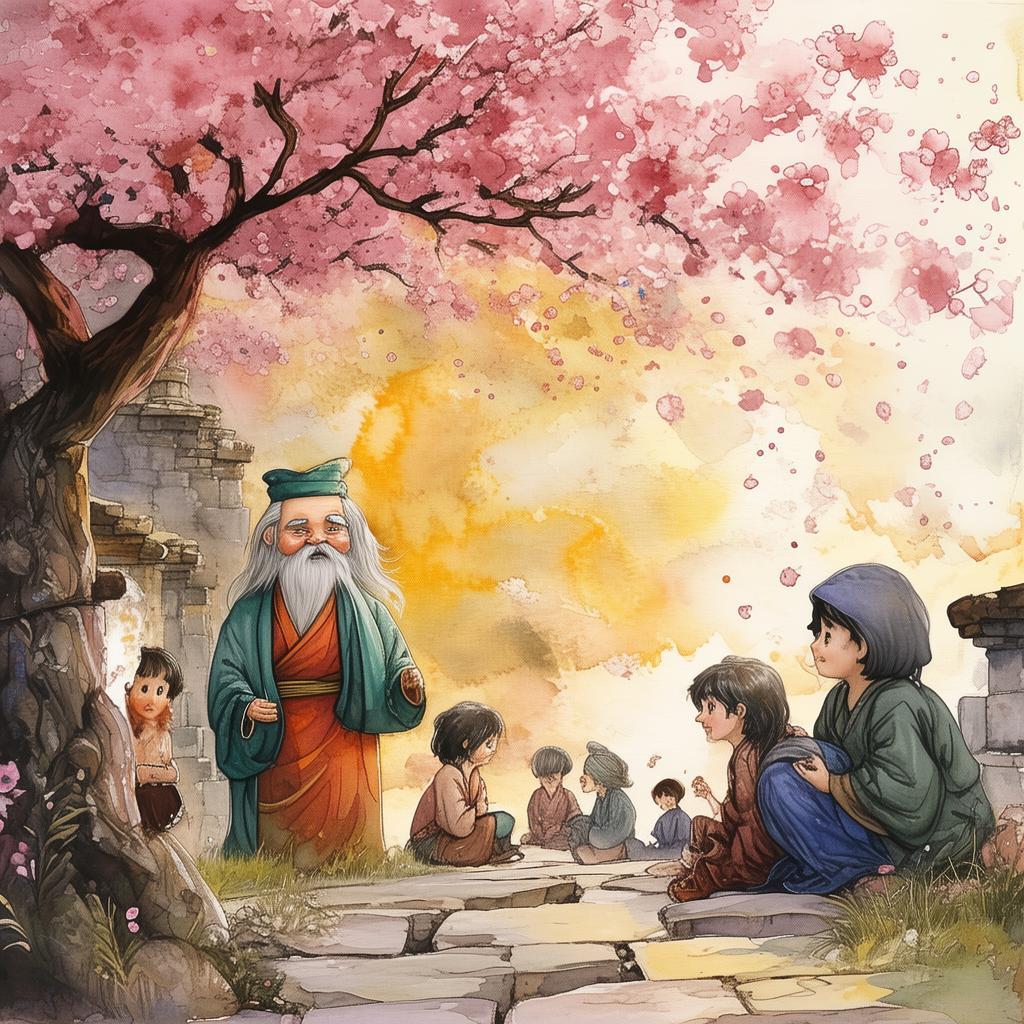Seeds of Serenity: The Zen Gardener's Art of Heart's Harmony
In the heart of ancient China, where the whispers of nature intertwined with the wisdom of the ancients, there was a Zen garden known to all as a place of serene beauty and profound truths. Within this tranquil expanse, an old gardener named Master Zhuang, with a face etched by the years but eyes that sparkled with the light of deep understanding, toiled with a grace and dedication that spoke of a life spent in harmony with the natural world.
Master Zhuang was a man of few words but of great wisdom, and his teachings, though often enigmatic, were like seeds that took root in the hearts of those who sought his counsel. Among these seekers was a young apprentice, a keen mind and a gentle spirit, who found himself drawn to the garden and the master's quiet presence.
One morning, as the sun began to cast its golden rays over the garden, the apprentice approached Master Zhuang, eager to learn the art of gardening. "Master," he began, "I have heard the tales of your gardens, how they speak to the soul and nourish the heart. I wish to learn from you."
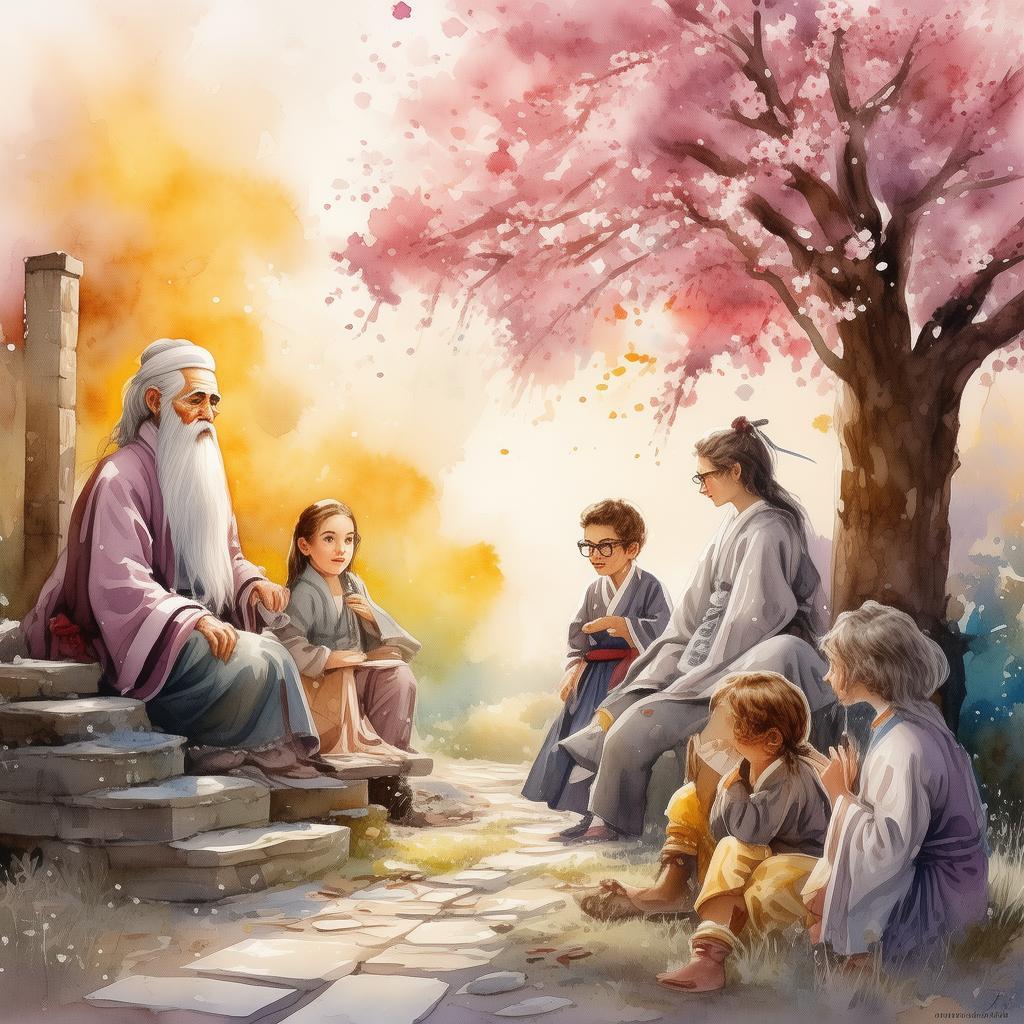
Master Zhuang, not looking up from his task, replied with a soft smile, "The art of gardening is not merely about nurturing plants, but about nurturing the heart of nature within us all. The garden is a mirror of our inner world, and the plants, its reflection."
The young apprentice listened intently, his mind alight with curiosity. "But how do we do that, Master? How do we tend to the heart of nature?"
Master Zhuang paused, and then, as if choosing his words carefully, he said, "We tend to the heart of nature by cultivating balance. In every garden, there are elements that must be in harmony—water, stone, and plants. The same is true for our hearts."
The days that followed were a series of lessons in the art of balancing the heart. Master Zhuang would speak of the garden's water, a symbol of fluidity and adaptability. "Water flows without resistance," he would say. "It adapts to the shape of its container. Our emotions must flow like water, without resistance, without clinging to pain or joy."
As the seasons changed, the apprentice watched Master Zhuang prune the trees, removing the dead branches to make way for new growth. "Why do you remove the branches?" he asked one day.
"To allow the tree to grow," Master Zhuang replied. "In life, we must prune away what hinders us, what prevents us from reaching our full potential."
One evening, as the moon cast a silver glow over the garden, the young apprentice found himself alone with Master Zhuang. "Master," he said, "I understand that balance is key, but how do I find it in the chaos of my own life?"
Master Zhuang looked at the young man and said, "Balance comes from within. It is not about the world around you, but about how you see it. The world is a reflection of your heart. If you find peace within, you will find it in the world."
The apprentice pondered these words, and as he did, he noticed the garden's stone pathway. It was worn, the edges rounded by time, a testament to the countless feet that had passed over it. "What about the path?" he asked. "It seems to be always the same."
"It is the same because it has been shaped by the footfalls of those who have walked it," Master Zhuang said. "Your path will be shaped by your steps. Walk with mindfulness, and your path will lead you to harmony."
As the months passed, the young apprentice's heart began to change. He found that he could carry the tranquility of the garden with him wherever he went. He smiled more easily, his mind more at peace. And as he walked through the world, he noticed that it seemed to smile back at him.
One day, as the apprentice was working in the garden, he heard Master Zhuang call him. "Come, my friend," Master Zhuang said, "I have a final lesson for you."
The apprentice hurried to Master Zhuang's side. "What is it, Master?" he asked.
"Remember," Master Zhuang said, "the heart of nature is a garden within us. We must nurture it with love, care, and balance. Only then can we truly live in harmony."
The young apprentice nodded, understanding dawning on him. He realized that the garden was not just a place of beauty but a place of learning, a place where he had discovered the art of heart's harmony.
And with that, Master Zhuang walked away, leaving the young apprentice to ponder the depth of his teachings. The garden remained, a testament to the enduring power of balance and harmony, a reminder that the heart of nature, both within and without, is always waiting to be cultivated.
Through the story of the Zen Gardener Master Zhuang and his apprentice, we learn the profound art of nurturing the heart of nature, using the elements of nature to cultivate harmony and wisdom. The tale leaves us with the Chinese proverb, "As the tree is known by its fruit, so a man by his deeds," a reminder that true wisdom is evident in our actions, and that harmony with the world and within ourselves is the essence of a life well-lived.
✨ Original Statement ✨
All articles published on this website (including but not limited to text, images, videos, and other content) are original or authorized for reposting and are protected by relevant laws. Without the explicit written permission of this website, no individual or organization may copy, modify, repost, or use the content for commercial purposes.
If you need to quote or cooperate, please contact this site for authorization. We reserve the right to pursue legal responsibility for any unauthorized use.
Hereby declared.
